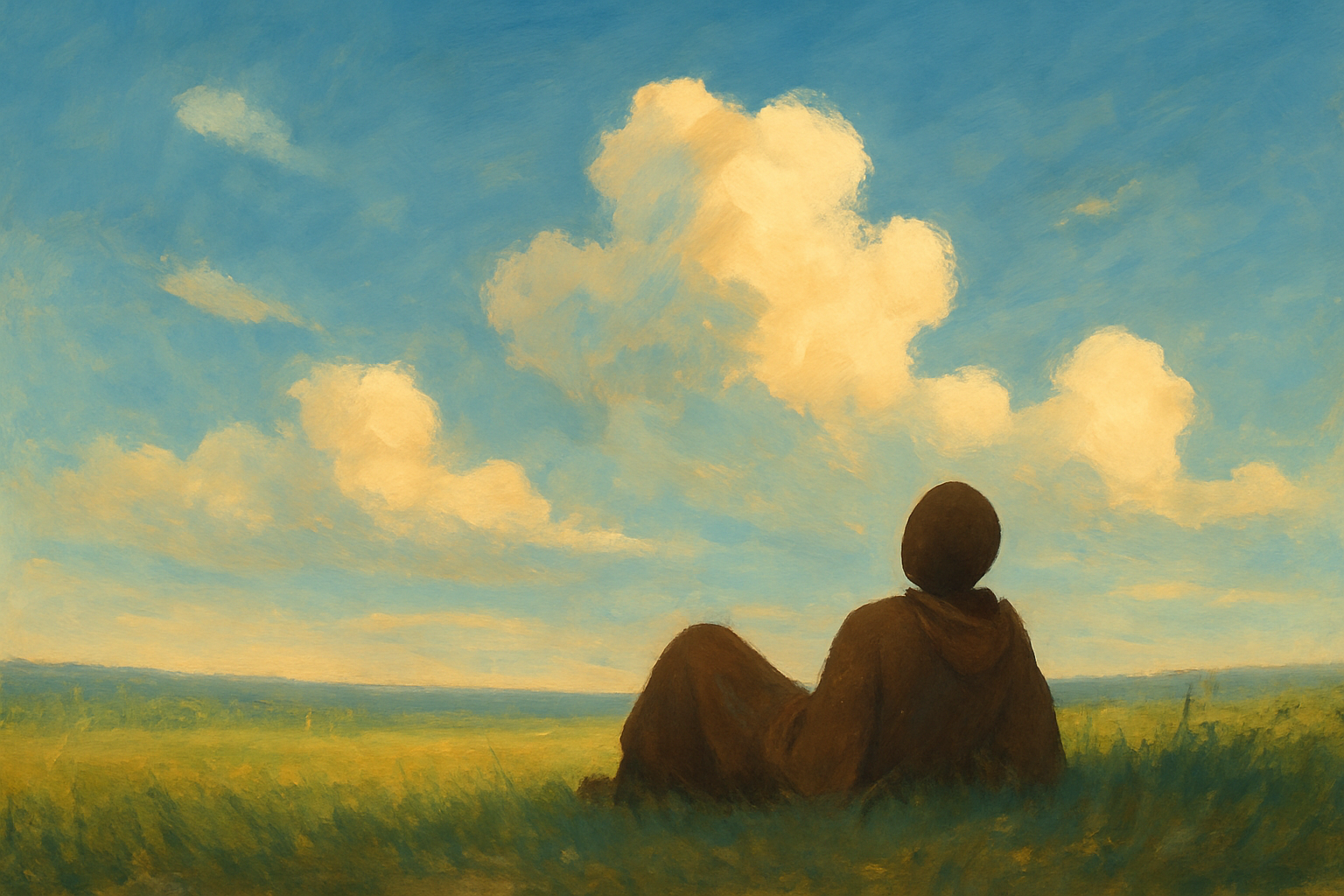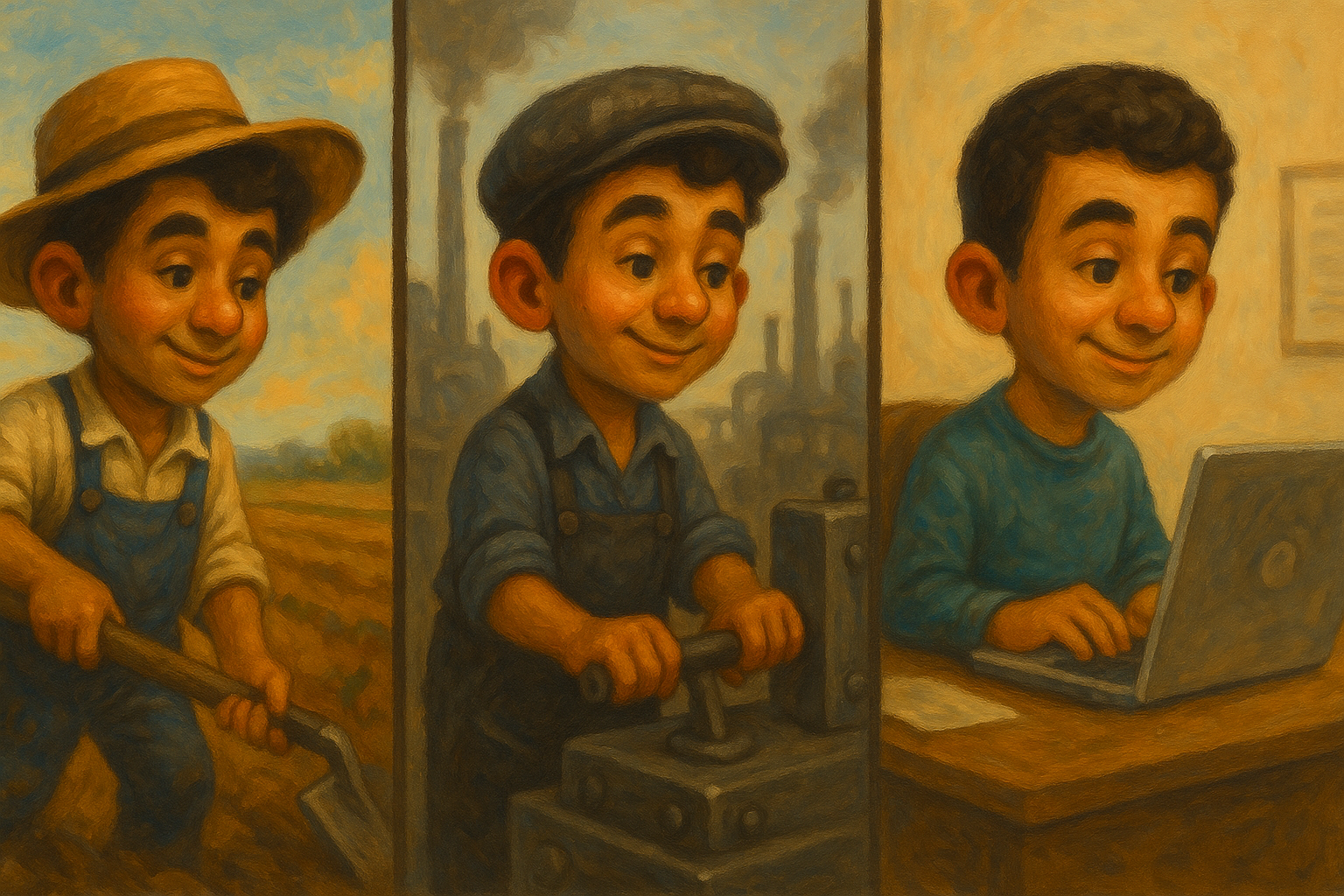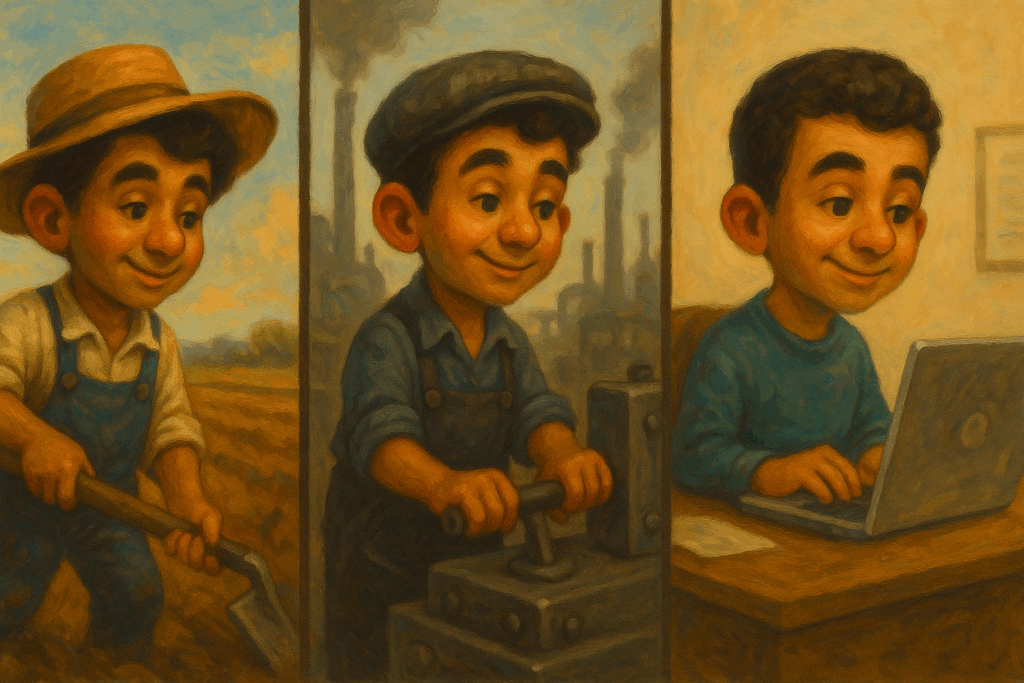Today’s world is in a strange in-between era. Schools are still designed for the industrial age, while we’re already at the end of the information age—with AI and robotics rising on the horizon.
So where does reflection fit in? Is taking time to do “nothing” wasteful—or is it actually central to our humanity?
Table of Contents
So is taking time to reflect a waste of time in Islam?
To answer that, we need to define what reflection really means.
On the surface, it looks like nothing. You’re not scrolling, you’re not watching TV, you’re not chatting on your phone. You sit. You stop. You seem unproductive.
But in reality, your mind is working. It’s sorting through thoughts, connecting patterns, and updating itself—much like a computer downloading software updates in the background.
In Islam, this stillness is not a waste. It is an act of deep value.
Every single prophet and messenger was a shepherd
What did shepherds have in common? Picture their daily life:
They took their animals out to graze—sheep, cows, goats, camels. And then… they waited. Hours passed with nothing to do but watch the animals and the sky.
At first glance, it looks like wasted time. But in reality, this space allowed reflection. Watching life unfold in silence, their minds opened to what truly mattered.
They weren’t chasing productivity. They weren’t racing the clock. They simply existed—and in that stillness, they received guidance, clarity, and wisdom.
Is stillness the core of human existence in Islam?
So, is Islam about stillness? Not entirely—but it does recognize it as essential.
When we look at what Allah asks of us, so much of it centers around reflection:
- Prayer (salah) — pausing five times a day.
- Dhikr and tasbih — slowing down to remember.
- Dua — turning inward, asking, listening.
This rhythm of stillness is the opposite of what the industrial era drilled into us—the fast eats the slow, inefficiency is a sin.
But now, with AI and machines outpacing us in speed, it’s clearer than ever:
Humans were never designed to compete with robots in efficiency. Our strength lies in something machines can’t imitate—empathy, creativity, and the depth of reflection.
That’s what we were truly made for.
Conclusion
Stillness is not laziness. Reflection is not wasted time. It is the foundation of creativity, clarity, and connection with Allah. Every prophet’s life shows us that slowing down is not weakness—it is strength.
And that is exactly the mindset we try to pass on through our books at Mayous. Our stories aren’t just “entertaining” or “educational.” They are designed to instill values, nurture reflection, and engineer a mindset that will help children grow into adults who are not only smart and successful, but also content and truly happy.
You can explore our catalog of fully illustrated storybooks here:
👉 Muslim Kids Storybook Catalog
Or you can access our free digital library and find your next favourite bedtime story here:
FAQ
What does reflection mean in Islam?
In Islam, reflection means pausing from distractions and allowing the mind to think deeply about life, faith, and creation. It may look like “doing nothing,” but in reality, it is a form of worship and self-awareness that connects us to Allah.
Is reflection in Islam considered laziness?
No, reflection in Islam is not laziness. The Qur’an and Sunnah encourage moments of stillness and thought. Many prophets, including Prophet Muhammad ﷺ, spent long hours in solitude reflecting before receiving revelation.
Why were prophets shepherds and how does that relate to reflection?
Every prophet was a shepherd at some point in life. Shepherding allowed them to spend quiet hours in nature, observing, reflecting, and connecting with creation. This practice trained them in patience, mindfulness, and leadership.
How does Islam view stillness and reflection compared to modern productivity culture?
While modern culture often values constant busyness, Islam teaches that slowing down has spiritual and creative value. Reflection in Islam nurtures clarity, empathy, and wisdom—qualities that machines and fast-paced systems can never replace.
How can parents teach children the value of reflection in Islam?
Parents can encourage quiet moments, storytelling, and discussions about nature and life. Our Mayous books are designed with this in mind—helping children not only gain knowledge but also learn to pause, reflect, and grow with strong values.



